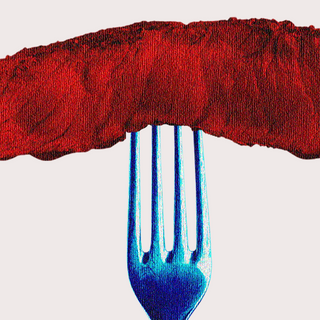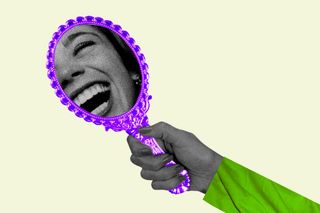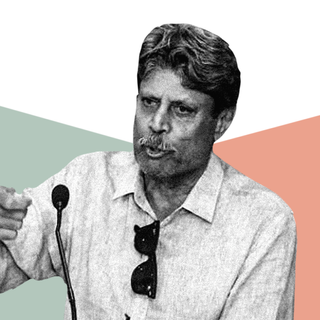
Using Self‑Deprecating Humor May Be a Sign of Poor Body Image, Suggests Study
“[H]ow a person speaks about themselves through humor can provide valuable insights into… how they view their bodies.”

There is always that one friend whose brand of humor is self-deprecating: they joke about themselves, negating the need for any outside criticism. Many of us, perhaps, indulge in self-deprecating humor to varying degrees ourselves, too. What explains this desire to mock the self? According to new research, the levity infused by self-deprecating jokes is indicative of something deeper: the way one feels about their body.
“Often people don’t talk openly about how they view their bodies, but how a person speaks about themselves through humor can provide valuable insights into such feelings,” explained first author Fabio Fasoli, a lecturer in social psychology at the University of Surrey.
Published in the journal Humor earlier this month, the study found that in comparison to women who used self-enhancing humor when referring to themselves in conversations, women who tended to rely on self-deprecating humor exhibited a much lower degree of appreciation for their bodies.
Upon analyzing the responses of 216 women who took part in a survey, the researchers observed that women, who persistently put themselves down through their sense of humor, were also more critical of their bodies and indicated a stronger desire to lose weight. At the same time, though, many of them were emotional eaters, too, which led to them feeling worse about their bodies due to the subsequent weight gain.
Related on The Swaddle:
How People’s Dissatisfaction With Their Own Bodies Shapes Their Judgement of Others’
Basically, overt, aggressive usage of self-deprecating humor served as a sign of deep-seated body image issues that, more often than not, trapped people in a vicious cycle of hating their bodies, overeating to feel better, and then hating themselves even more for doing so.
“People using themselves as the butt of jokes is often a technique to get approval from others, but it can also signify that something more worrying is going on in that person’s life. This type of humor can indicate that a person is struggling with their body image and self-esteem, which can have a long-lasting effect on their life,” noted co-author Jane Ogden, a professor of health psychology, also at the University of Surrey.
The research is instructive in exploring the link between why people make jokes, what jokes they make, and what it says about their perception of themselves. The researchers believe their findings could be helpful for clinical psychologists in understanding their clients. Besides, it could also prompt them to encourage people struggling with poor body image to steer towards positive humor, instead, in a bid to improve their wellbeing. Especially so, since, arguably, “Having a negative body image can affect all areas of a person’s life and lead to depression and social anxiety,” as Fasoli notes.
“In a world where we’ve been force-fed from a young age a constantly changing form of what ‘normal’ or ‘perfect’ should look like, with many of us believing we don’t fit into this mold, being ourselves never stood a chance,” Mervyn Reid-Nelson, a body confidence photographer based in London, had told Forbes in 2020. “Add to that our deep-rooted cultural behavior [of] being self-deprecating and you’re left with a pretty unhealthy mindset. Not only are we convinced that we don’t fit in but we compound the problem by putting ourselves down because of it. Talk about kicking ourselves in the teeth.”
Related on The Swaddle:
Why Body Image Issues of Pregnant Women Are Often Overlooked
One might wonder, though, why it is that a person with poor body image finds themselves drawn to self-deprecatory humor. For some people, it could work as a coping device. “I often use self-deprecating humor as a defense mechanism. It’s a way to beat everyone else to the punchline regarding the qualities I don’t like about myself,” Kylie Smith wrote in 2019. For Smith, who struggled with body insecurity, self-deprecating humor “serve[d] as a great way to ease my anxiety and embarrassment.”
Smith’s experience isn’t an isolated one. “[A]s an extremely overweight person my entire life, I have internalized the fat-shaming to such a degree that I am constantly self-deprecatory,” Revati Laul, a Delhi-based journalist and filmmaker, had written in The Quint.
However, in continually resorting to self-effacing humor, one often ends up internalizing negative ideas about oneself, reinforcing poor self-perception by way of jokes. “If you are continually speaking about yourself in a manner that puts yourself down, over time those comments and beliefs become a part of how you view yourself and impact your self-esteem. I think of it as slowly chipping away at the foundation of your sense of self over time,” explains Jill Daino, a therapist.
The solution, then, according to Smith: “Let’s use this type of humor to laugh at our little slip-ups, but not at ourselves as a whole.”
Devrupa Rakshit is an Associate Editor at The Swaddle. She is a lawyer by education, a poet by accident, a painter by shaukh, and autistic by birth. You can find her on Instagram @devruparakshit.
Related


How Kapil Dev Dismissing Mental Illnesses as Fads Actively Harms People
